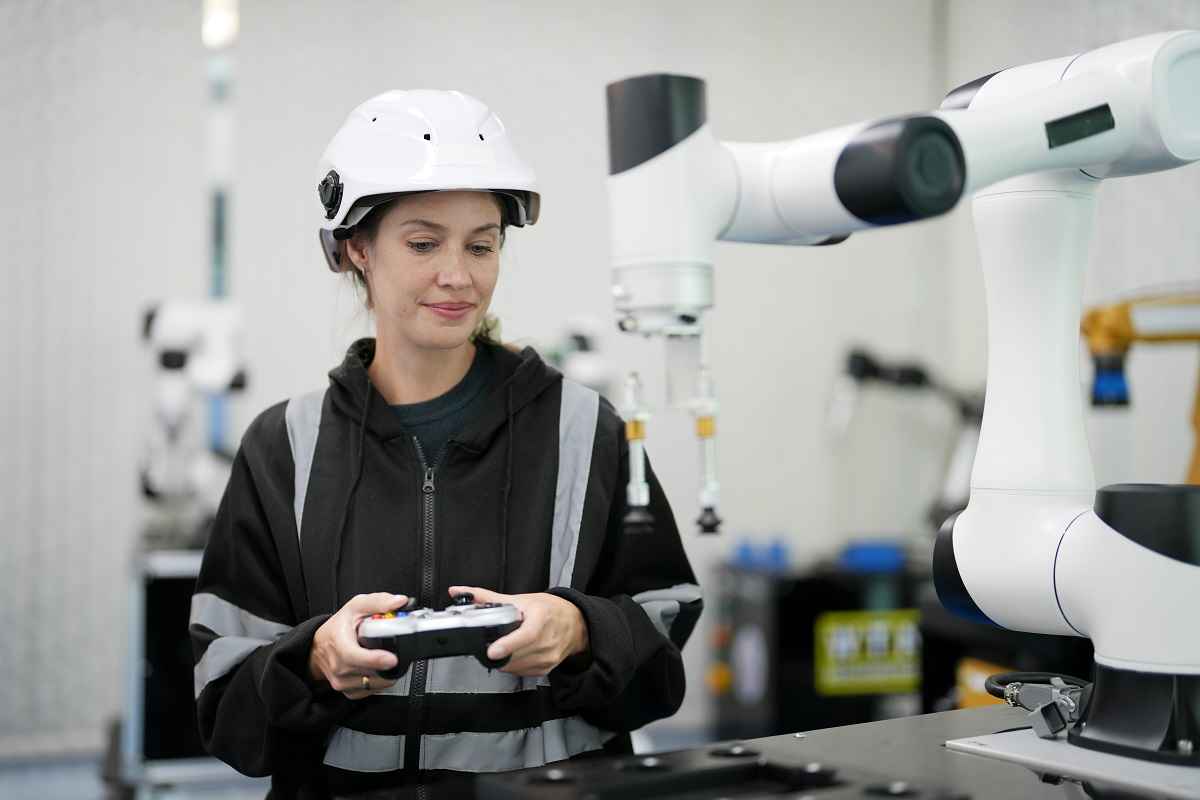What Is Artificial Intelligence?
Artificial Intelligence (AI) refers to the simulation of human intelligence in machines that are capable of performing tasks that typically require human cognition. These tasks include learning, reasoning, problem-solving, perception, and even language understanding. AI encompasses a wide range of technologies and methodologies, including machine learning, neural networks, deep learning, and natural language processing (NLP). These technologies enable machines to process large amounts of data, recognize patterns, and make decisions with varying degrees of autonomy.
AI is used in many applications, from simple rule-based systems to complex neural networks. In machine learning, a subset of AI, algorithms are designed to improve automatically through experience. This is often done by training models on large datasets and refining them based on outcomes. Deep learning, a further subset of machine learning, uses complex structures called neural networks, inspired by the human brain, to process data in intricate ways, allowing for advanced pattern recognition.
AI has found applications in various industries, including healthcare, finance, marketing, customer service, autonomous vehicles, and robotics. It is also crucial in emerging technologies such as computer vision, which allows machines to interpret visual information, and speech recognition, which enables machines to understand spoken language. The ability of AI to process vast amounts of data quickly and accurately is transforming how we live and work.
Why Learn About Artificial Intelligence Nowadays?
Learning about artificial intelligence is more important than ever as AI continues to revolutionize technology and reshape industries. Here are a few key reasons why learning about AI is crucial:
First, AI is driving significant technological advancements. It is at the heart of many emerging technologies, enabling automation, improved efficiency, and new business models. Understanding AI gives you insights into the latest technological trends and prepares you for a rapidly evolving job market.
Second, AI skills are in high demand across multiple industries. Whether it’s developing AI-driven applications, training machine learning models, or implementing AI-based solutions, the need for AI expertise continues to grow. By learning about AI, you position yourself for a career in one of the fastest-growing and most dynamic fields.
Third, AI is changing how businesses operate and make decisions. From data analytics to predictive modeling, AI offers tools to help companies optimize processes, improve customer experiences, and gain a competitive edge. Learning about AI allows you to understand these business transformations and contribute to innovative solutions.
Additionally, AI has significant social and ethical implications. As AI becomes more integrated into our daily lives, it’s essential to understand its impact on privacy, security, and employment. Learning about AI provides you with the knowledge to navigate these ethical challenges and contribute to responsible AI development.
Work in Artificial Intelligence
Working in artificial intelligence offers a wide range of roles and responsibilities, from developing AI models to implementing AI-based solutions in real-world applications. Here are some common career paths in AI:
AI Engineer
AI engineers design, develop, and implement AI systems. They work on building machine learning models, designing neural networks, and integrating AI into software applications. AI engineers need strong programming skills, often in languages like Python, and a deep understanding of AI frameworks such as TensorFlow and PyTorch.
Data Scientist
Data scientists use AI and machine learning techniques to analyze data and generate insights. They work with large datasets, creating models that predict trends, classify information, and uncover patterns. Data scientists often use tools like R and Jupyter Notebooks to process and visualize data.
Machine Learning Engineer
Machine learning engineers focus on building and deploying machine learning models in production environments. They work on tasks such as feature engineering, model tuning, and performance optimization. Machine learning engineers need expertise in data processing, algorithm selection, and cloud-based deployment.
AI Research Scientist
AI research scientists conduct research to advance the field of AI. They explore new algorithms, study deep learning architectures, and contribute to academic and industry research projects. This role requires a deep understanding of AI theory and often involves publishing research papers.
AI Ethicist
AI ethicists explore the ethical implications of AI technologies. They study issues like bias, privacy, and algorithmic transparency, and work on creating guidelines for responsible AI use. This role is critical as AI becomes more pervasive and requires a multidisciplinary approach.
Why Is Artificial Intelligence Crucial for Innovation?
Artificial intelligence is crucial for innovation because it unlocks new possibilities across industries and drives technological advancements. Here’s why AI is a key driver of innovation:
First, AI enables automation and efficiency. By automating repetitive tasks and processes, AI allows businesses to focus on innovation and creativity. Automation powered by AI increases productivity and reduces costs, enabling organizations to invest in new ideas and innovations.
Second, AI supports data-driven decision-making. AI’s ability to analyze large datasets and generate insights helps businesses make informed decisions. This data-driven approach fosters innovation by providing a clearer understanding of customer behavior, market trends, and business operations.
Third, AI fuels personalization and customer experiences. By analyzing user data and learning from interactions, AI creates personalized experiences for customers. This personalization drives innovation in marketing, product development, and customer service, enhancing customer satisfaction and loyalty.


